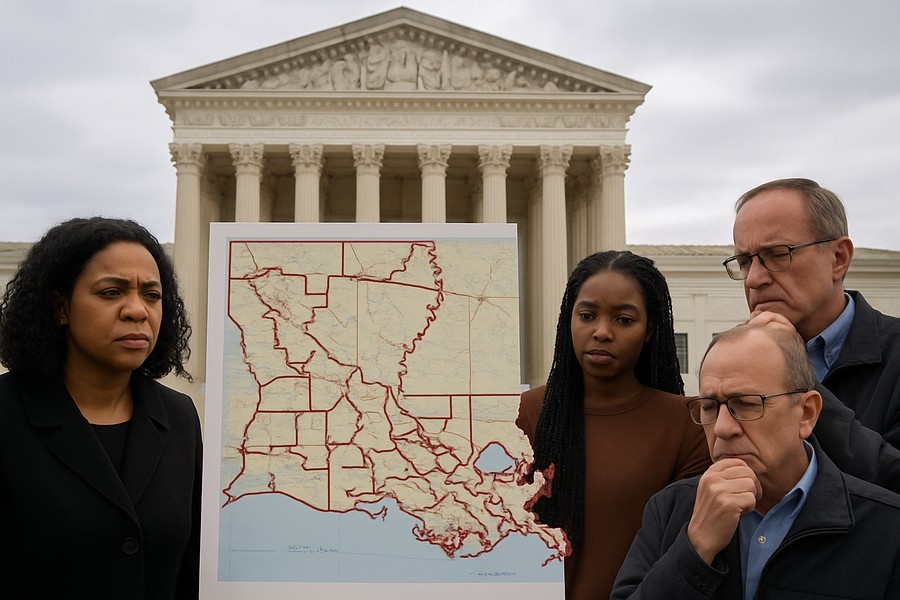
Implications of a Key Voting Rights Act Section Being Challenged
The United States Supreme Court is set to revisit a significant case, Louisiana v. Callais, which could potentially nullify Section 2 of the Voting Rights Act. This section serves as a primary shield against racially prejudiced redistricting. The potential nullification of this section could have a major effect not just in Louisiana, but across the entire nation.
The Underlying Issue
The case of Louisiana v. Callais began when the state's Republican Legislature was instructed to redraw a second majority-Black district, after it was found that their current congressional map was weakening the influence of Black voters. Despite Black residents accounting for about a third of Louisiana's population, they only had a fair opportunity to elect a representative of their choice in one out of six congressional districts.
However, following the court-ordered redrawing of the map, a group of non-Black voters sued, arguing that preventing proven discrimination was itself racial discrimination. Their argument was accepted by a lower court and subsequently by the Supreme Court, despite opposition from both Louisiana's Republican officials and the original plaintiffs.
Shifting Stances
Interestingly, the same officials who initially defended the court-ordered map later requested the Supreme Court to invalidate Section 2 of the Voting Rights Act. This reversal indicates a potential threat to this critical safeguard against racial discrimination in electoral proceedings.
The Real Danger
The potential fallout of eliminating Section 2 is not just hypothetical. If politicians who engage in gerrymandering to suppress voters of color are provided with a new defense—that remedying racial discrimination is itself discriminatory—it would be nearly impossible to challenge unfair maps. This could affect not only Congress, but also state legislatures, city councils, and school boards across the country.
Ultimately, this could result in a shift of power where representation reflects the desires of those in power rather than the will of the people. This could lead to a situation where incumbents are protected by maps drawn to their advantage, allowing them to evade accountability.
What's at Stake
If Section 2 of the Voting Rights Act falls, it could provide a powerful tool to those seeking to weaken fair representation and consolidate their hold on power. This could lead to elections that, while appearing free, are manipulated to maintain the status quo, thereby undermining democracy.
The Way Forward
Despite the challenges, there is a path forward. First, Democrats should strive to redraw maps aggressively to counter gerrymandering efforts, without weakening minority voting power. Second, they should focus on regaining control of Congress, particularly the House. Winning even one chamber would provide them with the ability to hold hearings, conduct investigations, and exercise other legislative oversight powers to expose manipulation of electoral systems and hold the Supreme Court accountable.
Further, passing pro-democracy reforms like the Freedom to Vote Act and the John R. Lewis Voting Rights Advancement Act would demonstrate Congress's commitment to protecting Americans' right to vote. If these bills are passed, even if they don't automatically become law, it could create public momentum for passing this crucial legislation when a more receptive Congress and president are in office.
The potential nullification of Section 2 of the Voting Rights Act is part of a larger pattern of rights being stripped away. As we've seen with the overturning of Roe v. Wade and the erosion of reproductive rights, the right to fair representation is now also under threat. As this case is heard by the Supreme Court, voting rights advocates will gather outside to call for the protection of voting rights, reminding us that democracy needs defending.
The power to act still lies with Congress, which can pass the John R. Lewis Voting Rights Advancement Act and establish real oversight of the court. The public also has a role to play in applying pressure. Fair maps, free elections, and a representative Congress are our best defenses against the push for authoritarianism—but only if we use them.
